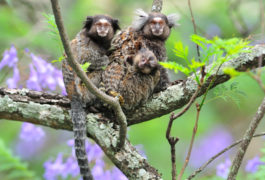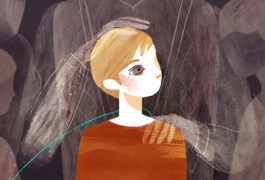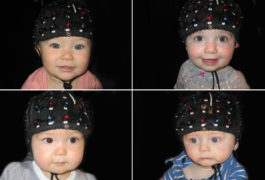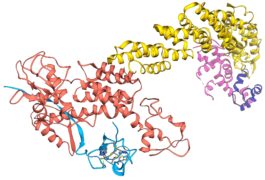Valproate ban; hearing voices; adult autism and more
A movement to ban valproate during pregnancy gains a foothold in France, people with auditory hallucinations seek to demedicalize the experience, and adults on the spectrum speak out.
A movement to ban valproate during pregnancy gains a foothold in France, people with auditory hallucinations seek to demedicalize the experience, and adults on the spectrum speak out.

Baby marmosets learn to vocalize by mimicking their parents, which helps to establish their utility for studying autism.

Autism and schizophrenia share a long and tangled history. Comparing the social features of the two conditions could lead to better treatments and a deeper understanding of each.

Babies with a family history of autism have heart rates that are unusually low and that respond aberrantly to speech sounds.

Children missing a stretch of DNA on chromosome 16 show worsening motor and social skills in the first eight years of life; those with an extra copy of the region do not show this decline.

Assessing social ability in adults with autism requires controlled tests involving real-time social interactions. Virtual reality makes this possible.

Between the ages of 2 and 8, intelligence increases in half of children with autism. In some of these children, intellectual disability gives way to average intelligence.

Parents in a pilot program reported a significant improvement in their child’s narration and were also surprised to see the difference it made in their ability to communicate with their sons and daughters with autism.

Mutations in a gene called TRIP12 — which is involved in tagging proteins for destruction — can lead to intellectual disability, language delay and autism.

Parents in the United States tend to rate their children’s autism features as more severe than do parents in four other countries.